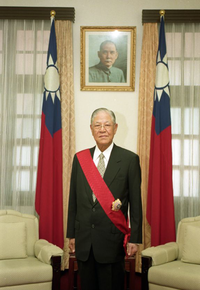讨论:二月政争
外观
|
本条目依照页面评级标准评为初级。 本条目属于下列维基专题范畴: |
||||||||||||||||||||
|---|---|---|---|---|---|---|---|---|---|---|---|---|---|---|---|---|---|---|---|---|
|
||||||||||||||||||||
名称讨论
[编辑]新闻媒体多直接使用二月政争,二月政治斗争为原创名称,不适宜改名。希望大家讨论。--Alfredo ougaowen(留言) 2013年10月5日 (六) 14:02 (UTC)
- 维持惯用现名即可。二月政争与九月政争相较,李与他人是争多于斗、疯马则明显是斗多于争。--WildCursive(留言) 2013年10月7日 (一) 15:48 (UTC)
English translation draftified over there
[编辑]
The February 1990 power struggle was a political crisis within the ruling Kuomintang party in Taiwan.[1] After the death of President Chiang Ching-kuo on 13 January 1988, the presidency passed to Vice President Lee Teng-hui from the “mainstream” faction of the party. Lee consolidated his leadership of the Kuomintang despite the scheming of the “non-mainstream” or “palace” faction against him in February 1990. The struggle resulted in the Chiang family’s loss of political control. The non-mainstream faction soon split from the party to form the New Kuomintang Alliance and ultimately the New Party.
See also
[编辑]--Kaihsu(留言) 2024年9月23日 (一) 18:43 (UTC)
- ^ 郝柏村與李登輝 國民黨「主流非主流」之爭. [2020-12-06]. (原始内容存档于2020-04-02).


